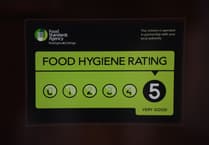AN Alton GP is urging patients to write to their MPs to show local support in what is a difficult time for general practice. The row between GPs and the Government over extended surgery hours intensified this week as letters from Health Secretary, Alan Johnson, dropped into GP in-trays, exhorting them to agree to work an extra three hours a week. But, according to Wessex Local Medical Committee (LMC) member, Dr Terry Cubitt, the new working hours would require a change in contract which has not been agreed by GPs. It is seen instead as a ploy by Government to dig itself out of a hole of its own making. Like others, local GPs are angry because they believe the British Medical Association (BMA) and the NHS Employers were "within a whisker" of reaching an agreement which would address Government pressure for GP surgeries to open 8am to 8pm. But Gordon Brown has waded in heavy-handed, threatening GPs with increasing competition from the private sector if they fail to become more flexible. Dr Cubitt, who runs a GP practice in Alton, says that local family doctors are already flexible and feel a great sense of commitment to their patients. He believes the problem has arisen as a result of the new GP contract, introduced in 2004, which was designed to allow a practice to operate in financial security by rewarding GPs a global sum for good practice and quality of service. Despite being told that the majority of practices would take no time to meet the required quality targets, according to Dr Cubitt, the Government set a budget for the new GP contract 15 per cent below what was required and was wrong-footed when GPs achieved those targets. As a result, for the last two years, GPs have been subjected to "progressive denigration" by a government "crying foul" and engineering a campaign which has seen them branded as "money-grabbing fat cats". But it was ministers who agreed the new contract with the BMA. And it was they who agreed terms which have seen a GP partner's average salary rise to £100,000 and the removal of responsibility from GPs for out-of-hours care which is now provided by the Primary Care Trusts (PCT). A recent patient survey has shown that, in line with national figures, the majority of people in Hampshire are satisfied with the availability of service. "We are trying to be flexible. There is a small percentage of people who would like to receive late appointments but the majority of our patients are older or have young families and they would not want to come out in the evenings," said Dr Cubitt. Most GPs are not against longer opening hours per se but would prefer to put additional resources into improving care for people with heart conditions or suffering from diseases like osteoporosis. Instead they have been forced to look at the best way of offering three hours of extra appointments, by recycling funds they already receive, bolstered by the £12,000 new investment designed to cover the costs of paying receptionists and other staff for working late. Despite these negotiations going on in the background it appears the Government has chosen to torpedo them, choosing instead to bulldoze through a change to the 2004 contract, using a clause which, in the event of a national emergency, allows the introduction of new working practice without consultation. It will pave the way for the launch in April of a scheme which, if not taken on board by the GPs, will see £35,000 of practice income handed over to the local PCT to buy extra hours from other providers in the private sector. The BMA is to poll doctors this month on whether to accept the Government's proposals. It is said to have advised members that if they feel strongly they can effectively 'resign' from the NHS and introduce an American-style service, charging around £25 per consultation. It is indicative of what Dr Cubitt sees as the underlying threat from the private sector, which could change the concept of the family doctor for ever.



